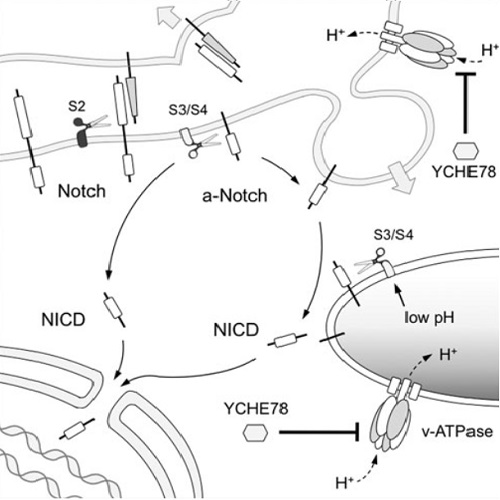The H(+) vacuolar ATPase maintains neural stem cells in the developing mouse cortex.
The vacuolar H(+) ATPase (v-ATPase) is crucial for endosome acidification, endocytosis, and trafficking in essentially all eukaryotic cells. Recent studies have shown that inhibition of the v-ATPase also leads to downregulation of important signaling pathways, including Notch and Wnt, which are key regulators of cell differentiation and tissue homeostasis across the animal kingdom. However, the requirement of endosome acidification and endocytosis in the transduction of Notch signaling is still highly debated. Moreover, no study has yet investigated the role of the v-ATPase during mammalian development. Here we show that expression of a dominant-negative subunit of the v-ATPase in neural precursors of the developing mouse cortex depleted neural stem cells by promoting their differentiation and the generation of neurons. Moreover, inhibition of the v-ATPase reduced endogenous Notch signaling and prevented the proliferative effect of a transmembrane, ?-secretase-dependent, active Notch without blocking the effects of its cytoplasmic intracellular domain (NICD). Our data are consistent with recent reports in Drosophila in which the v-ATPase has been suggested to be important for the transduction of Notch signaling. By extending these reports to mammalian embryos, our data may contribute to a better understanding of the role of the v-ATPase, endosome acidification, and endocytosis in signal transduction during neural stem cell differentiation and brain development.

- Stem Cells Dev. 2011 May 19;20(5):843-50
- 2011
- Neurobiology
- 21126173
- PubMed
Enabled by:
